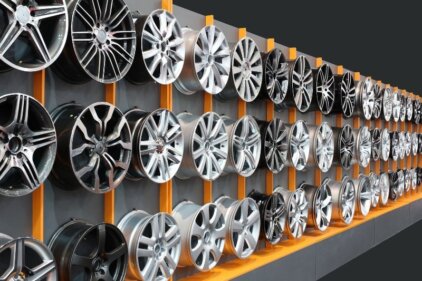The car market has undergone significant transformations in recent years, driven by advancements in technology and changing consumer preferences. As a result, car manufacturers and dealerships are facing new challenges and opportunities. In this article, We will explore the evolving car market, unveiling key consumer trends and providing insights into the preferences and behaviors of car buyers.
The impact of technology on the car market
Technology has revolutionized the car market, introducing a wide range of features and innovations that enhance the driving experience. From advanced safety systems to seamless connectivity, today’s cars are more sophisticated than ever before. One notable technological advancement is the integration of artificial intelligence (AI) in vehicles, enabling features such as voice control and autonomous driving.
Moreover, the rise of electric and hybrid vehicles has been a game-changer in the industry. With concerns over climate change and increasing fuel prices, consumers are increasingly opting for eco-friendly alternatives. Electric vehicles offer a sustainable and cost-effective solution, and as a result, we have witnessed a surge in their popularity. Car manufacturers are investing heavily in developing electric and hybrid models to cater to this growing demand.
Consumer trends in the car market
Understanding consumer trends is crucial for car manufacturers and dealerships to adapt their strategies and meet the evolving demands of customers. One significant trend is the shift towards online research and purchasing. With the advent of the internet, consumers have access to a wealth of information at their fingertips. They can compare prices, read reviews, and even customize their vehicles online. This trend has led to the rise of online car buying platforms, challenging the traditional dealership model.
Another trend is the increasing demand for personalized and customizable vehicles. Consumers want to express their individuality through their cars, and car manufacturers are responding by offering a wide range of customization options. From unique paint colors to personalized interiors, buyers now have the freedom to create a vehicle that reflects their personality and lifestyle.
Insights into the preferences and behaviors of car buyers
To succeed in the evolving car market, it is essential to understand the preferences and behaviors of car buyers. Research has shown that safety is a top priority for consumers when purchasing a car. Features such as collision avoidance systems, lane-keeping assist, and blind-spot monitoring are highly valued. Additionally, fuel efficiency and reliability are crucial factors influencing buying decisions.
Furthermore, brand reputation plays a significant role in the decision-making process. Consumers are more likely to trust well-established brands with a history of producing high-quality vehicles. However, there is also a growing interest in emerging brands that offer innovative designs and cutting-edge technology.
The rise of electric and hybrid vehicles
As mentioned earlier, the rise of electric and hybrid vehicles is transforming the car market. With concerns over climate change and the need to reduce carbon emissions, consumers are increasingly choosing eco-friendly options. Electric vehicles offer a cleaner and quieter driving experience, with the added benefit of lower fuel costs. Despite initial concerns over limited charging infrastructure, governments and private companies are investing heavily in building charging networks, making electric vehicles more accessible.
Hybrid vehicles, which combine an internal combustion engine with an electric motor, offer a middle ground for those hesitant to fully transition to electric. They provide improved fuel efficiency and reduced emissions, making them an attractive option for environmentally conscious consumers. As battery technology continues to advance, we can expect electric and hybrid vehicles to become even more prevalent in the coming years.
The influence of sustainability on the car market
Sustainability has become a significant driving force in the car market. Consumers are increasingly conscious of the environmental impact of their choices and are seeking greener alternatives. Car manufacturers are responding by incorporating sustainability into their business practices. They are investing in research and development to create more fuel-efficient vehicles, reducing their carbon footprint throughout the manufacturing process, and exploring renewable energy sources for charging electric vehicles.
Moreover, sustainability is not limited to the product itself but extends to the entire ownership experience. Car manufacturers are implementing recycling programs for end-of-life vehicles, ensuring that components are properly disposed of or reused. Some companies are even exploring innovative ways to reduce waste, such as 3D printing car parts on-demand, minimizing the need for extensive inventories.
The future of autonomous vehicles
Autonomous vehicles, also known as self-driving cars, represent the future of the car market. While fully autonomous vehicles are not yet widely available, significant progress has been made in this area. Companies like Tesla and Waymo have been at the forefront of developing autonomous technology, and their efforts are paving the way for a future where cars can navigate without human intervention.
The benefits of autonomous vehicles are numerous. They have the potential to reduce accidents caused by human error, improve traffic flow, and enhance accessibility for individuals who are unable to drive. However, there are still several challenges to overcome, including regulatory hurdles, public acceptance, and cybersecurity concerns. As autonomous technology continues to evolve, it is crucial for car manufacturers and policymakers to work together to ensure a safe and seamless transition.
Strategies for car manufacturers to adapt to the evolving market
In order to thrive in the evolving car market, car manufacturers must be proactive in adapting their strategies. One key strategy is embracing technological advancements and incorporating them into their vehicles. This includes features such as AI integration, advanced safety systems, and connectivity options. By staying at the forefront of innovation, car manufacturers can attract tech-savvy consumers and differentiate themselves from competitors.
Another strategy is diversifying their product offerings to cater to a wide range of consumer preferences. This includes developing electric and hybrid vehicles, as well as offering customization options to appeal to individual tastes. Additionally, car manufacturers should focus on building strong brand reputations based on quality, reliability, and sustainability. By establishing themselves as leaders in these areas, they can gain the trust and loyalty of consumers.
The role of car dealerships in the changing landscape
As the car market evolves, so does the role of car dealerships. While online research and purchasing have become more prevalent, dealerships still play a vital role in the car-buying process. They provide a physical location for consumers to test drive vehicles, ask questions, and receive personalized assistance. However, dealerships must adapt to changing consumer expectations by embracing digital platforms and offering online purchasing options. By providing a seamless omnichannel experience, dealerships can enhance customer satisfaction and drive sales.
Furthermore, dealerships can differentiate themselves by offering value-added services. This includes providing maintenance and repair services, offering extended warranties, and facilitating the charging infrastructure for electric vehicles. By going beyond the initial sale and building lasting relationships with customers, dealerships can secure repeat business and foster brand loyalty.
Conclusion
The car market is in a state of constant evolution, driven by technology, changing consumer preferences, and sustainability concerns. Car manufacturers and dealerships must adapt to these changes by embracing innovation, understanding consumer trends, and offering products and services that cater to individual needs. The rise of electric and hybrid vehicles, the potential of autonomous technology, and the importance of sustainability are shaping the future of the industry. By staying ahead of the curve and embracing these trends, car manufacturers and dealerships can thrive in the evolving market and continue to meet the needs of consumers.





